These are three of my favourite quotes by Teach For Australia Alumni:
“Over the past two years my feelings regarding what I am achieving have ebbed and flowed, waxed and waned. Am I achieving anything, am I helping my students, are some students beyond reach, is the current public education system inimical to progress?”
*
“To survive and even thrive at school I have had to reconcile what I wish to achieve with what I am actually achieving, all the while being conscious of not letting my standards fall. This constant dialectic between achieving an acceptable teaching standard – one that will help students succeed in life –and one that is feasible drains me… it is constant, even harrowing, it keeps me up at night.”
*
“A friend once said that at times a child can singularly focus on having fun. Consider the way a child jumps into a puddle and the sheer joy expressed on his/her face. In my eyes, however, the idea of a singular focus on joy does not convey the unabashed and unadulterated joy a child can exhibit. There is no focus, the child simply is happy and enjoys the moment. This joy is what keeps me going as a teacher. At my lowest points I can see moments of joy and beauty that cannot easily be replicated in other working environments.”
*
These quotes are my favourites because they capture three key things teachers deal with: constant reflection, an underlying concern with impossible questions, and sheer elation one feels when the stars align and kids exhibit learning in one way or another.
Until recently I felt these three quotes neatly summed up the experience of a teacher.
It was only recently that I felt a fourth dimension – a feeling that teaching can make one a better person.
In the Analects Confucius’s disciples wrote in painstaking detail about the way he went about daily life. He would not eat until he straightened his mat and would not teach while eating.
These daily moments were the means through which one could become a better person.
Confucius’s teachings were not concerned with the ‘big moral questions’ such as ‘do I have free will’, ‘what is the best moral system’, etc, but with the seemingly quotidian. He asked:
How are you living on a daily basis?
Consider that one’s disposition is to respond emotionally to people and different situations.
We elicit certain responses to seeing a friend, hearing a new show is being released, or being called to the principal’s office.
Moment after moment, encounter after encounter all humans are shaped by emotional experiences.
The interactions and the way we respond are so finely ingrained in our daily lives that they are the ones Confucius felt we should be concerned with.
Confucius’s goal was to move from a state whereby we randomly respond to things emotionally to a state of propriety.
Only by studying our responses and training ourselves to cultivate our emotions could we move from fragmented encounters with people and situations to create pockets of order.
His teachings demonstrate that cultivation of one’s demeanour and behaviour (the pathway towards being ethical) comes through transformative rituals in everyday life.
On the one hand we have learnt to perform customs such as shaking hands and saying hello that have become normal – we perform these by rote. But when we perform them by rote they can lose their power to transform us.
The key here is to place ourselves in different roles that allow us to become a different person for a moment.
In The Path Michaell Puett and Christine Gross-Loh write how relations are transformed when an adult and child play hide and seek because the two players are taking on social roles that diverge from their ordinary ones.
It is the different that is memorable and that transforms the way we think about things.
These rituals allow one to “create short-lived alternative realities that return us to a life slightly altered” (p.29) and if performed well can allow us to move from a troubled world of human relationships to a space where ideal relations can be forged (p.32).
They can expose the ideal and prompt or remind us of what we want to work towards.
The school itself can be a ritualistic space that allows for the transformation of behaviours.Through habit formation students learn their ‘pleases’ and ‘thankyous’ before starting to tweak these expressions of politeness in nuanced ways.
As they go about expressing these they may create a more stable environment and moments in others life that foster positive feelings.
As we always leave these ritualistic spaces and return to the messy spaces of life, we need to keep returning to rituals in order for them to become encoded.
For the teachers, the unabashed and unadulterated joy that one sees students exhibiting and the improvements they exhibit over time serves as a wonderful reminder of how we act be in general life.
As I move from the ritualistic space of the school to my regular life I too fall back into patterned habitual responses.
Yet after a number of years my demeanour has changed.
The ideal of what a person should be, the one I want to model as a teacher is slowly creeping into my everyday world.
My striving for ‘unconditional positive regard’ (showing inherent respect for people despite their behaviour) that is just that – a striving for an ideal and not a behaviour that I can perfectly emulate – is moving forward and spreading to other parts of my life.
It is not enough to simply strive for an ideal, we need to embed it in our micro actions, and be comfortable to accept this as a movement towards a goal.
We can’t just say strive for unconditional positive regard, or think of the children – these phrases become clichéd and have short-lived positive results.
The sheer joy of things I have seen at schools are wonderful reminders producing exhilaration that I am yet to feel in other contexts.
But, these images and memories and thoughts take time to become embedded in one’s psyche, they take time to wrestle away the overwhelming negative thoughts one can feel from time to time.
Confucius teaches us that we don’t need to focus on grand dramatic events, but we should focus on the daily. We can cultivate and express goodness as a way to become an ethical person and realise that a way to enjoy teaching is to focus on the minute and hence practical.
Change doesn’t happen until people alter their behaviour and people only start altering their behaviour with the small.
As Puett and Gross-Loh write:
“Our lives begin in the everyday and stay in the everyday. Only in the everyday can we begin to create a better world.” (p.52)
Sometimes our teaching world – the world of ideals and high hopes – can even slip into and shape our regular worlds.





